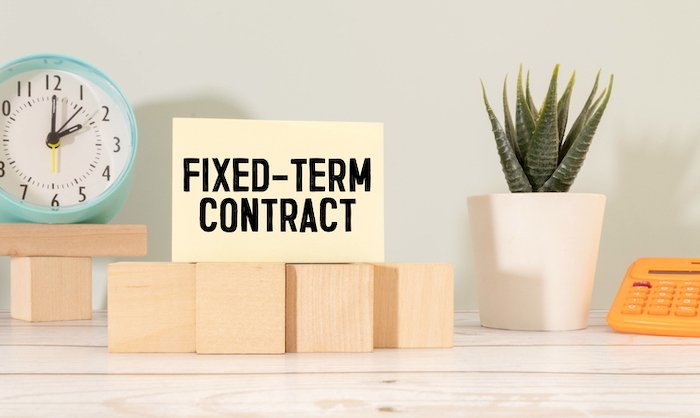Owning an investment property can feel like an emotional rollercoaster. And every landlord is affected by tenant-related fears at some point. Chances are good that you already know the highs of steady rental income and long-term value growth—and the lows of unexpected tenant issues and property maintenance headaches.
But here’s the reassuring truth: most landlord challenges are manageable, and with the right strategies, they can even become rare.
Let’s explore the common worries landlords face and how to tackle them head-on, turning those fears into confidence.
Understanding the Top Landlord Challenges—and How to Solve Them
When you think about renting out a property, it’s easy to imagine smooth transactions and happy tenants. But what happens when reality intrudes? Unpaid rent, property damage, or extended vacancies can make any landlord question their decision.
Take a deep breath. These scenarios don’t have to derail your investment journey. Here’s how to protect your property, your peace of mind and overcome your tenant-related fears.
1. The Disappearing Tenant Dilemma
Picture this: the rent is due, but your tenant has vanished. What now?
- Maximise Your Safety Net: New Zealand law allows landlords to collect a bond of up to four weeks’ rent. This fund can cover missed payments or repair costs.
- Landlord Insurance is Essential: Many policies cover up to 12 weeks of unpaid rent and even damage caused by tenants. Just be sure to review the fine print to know exactly what’s covered.
2. When Rent Payments Dry Up
Sometimes tenants stick around—but their payments don’t.
- Hire a Property Manager: A skilled property manager can screen tenants with thorough background and credit checks, significantly reducing your risk.
- Act Quickly: If rent stops, issue a 14-day breach notice immediately. And if needed, escalate the matter to the Tenancy Tribunal.
3. Handling Property Damage Like a Pro
Whether accidental or intentional, damage is a worry for every landlord.
- Insurance Coverage: Seek policies that include malicious damage and offer robust coverage, often up to $30,000 or more.
- Leverage the Bond: Beyond standard wear and tear, the tenant’s bond can help cover repair costs.
4. Keeping Your Property in Top Condition
Preventing issues is often easier (and cheaper) than fixing them.
- Choose Durable Materials: Scratch-resistant laminate flooring and easy-to-clean surfaces reduce long-term wear.
- Regular Inspections: Quarterly property check-ups let you catch minor issues before they escalate into costly repairs.
5. The Empty Property Problem
Vacancies can quickly drain your cash reserves. Here’s how to minimise downtime:
- Flexible Pricing: Temporarily adjusting rent can attract tenants quickly. Once demand picks up, you can return to market rates.
- Proactive Marketing: High-quality photos and well-crafted listings can help fill vacancies faster.
6. Guarding Against Illegal Activities
No one wants their property used for unlawful purposes, but vigilance pays off.
- Frequent Inspections: Keep an eye out for unusual signs like missing lightbulbs and locks changed.
- Insurance as a Back-Up: Many policies cover costs for decontaminating and repairing properties affected by illegal activity.
7. Setting Boundaries with Tenants
Great tenant relationships require clear communication and firm boundaries.
- Stick to the Tenancy Agreement: This document is your foundation for resolving disputes.
- Know Your Legal Rights: Familiarize yourself with the Residential Tenancies Act to ensure fair, compliant interactions. In particular read and understand S40 Tenants responsibilities, S45 Landlords responsibilities and Schedule 1A Amounts for unlawful Acts and Schedule 1B Fines & fees for infringement offences
8. Resolving Disputes Effectively
Disputes are inevitable, but they don’t have to be disastrous.
- Keep Detailed Records: Document everything from rent payments to property conditions.
- Use Mediation First: Many conflicts can be resolved without escalating to the Tribunal, saving time and stress.
The Landlord Mindset: Preparation Is Key
Successful property investment isn’t about avoiding every problem—it’s about being ready for whatever comes your way. With the right systems and safeguards, you’ll find that many challenges are easily managed.
Your Landlord Toolkit
- Thorough Tenant Screening: A good tenant is your best defense against problems.
- Reliable Property Management: Professional managers handle the day-to-day, so you don’t have to.
- Comprehensive Insurance: Protect your investment from the unexpected.
- Proactive Maintenance: Prevent issues before they start.
Closing Thoughts
Owning an investment property can be a rewarding venture when approached with the right strategies. By staying prepared and informed, you can reduce tenant-related fears and turn potential headaches into opportunities for growth and success.
Got questions about managing tenants or maintaining your property? Drop them in the comments or send us a message! We’re here to help you navigate the rewarding journey of property ownership.



